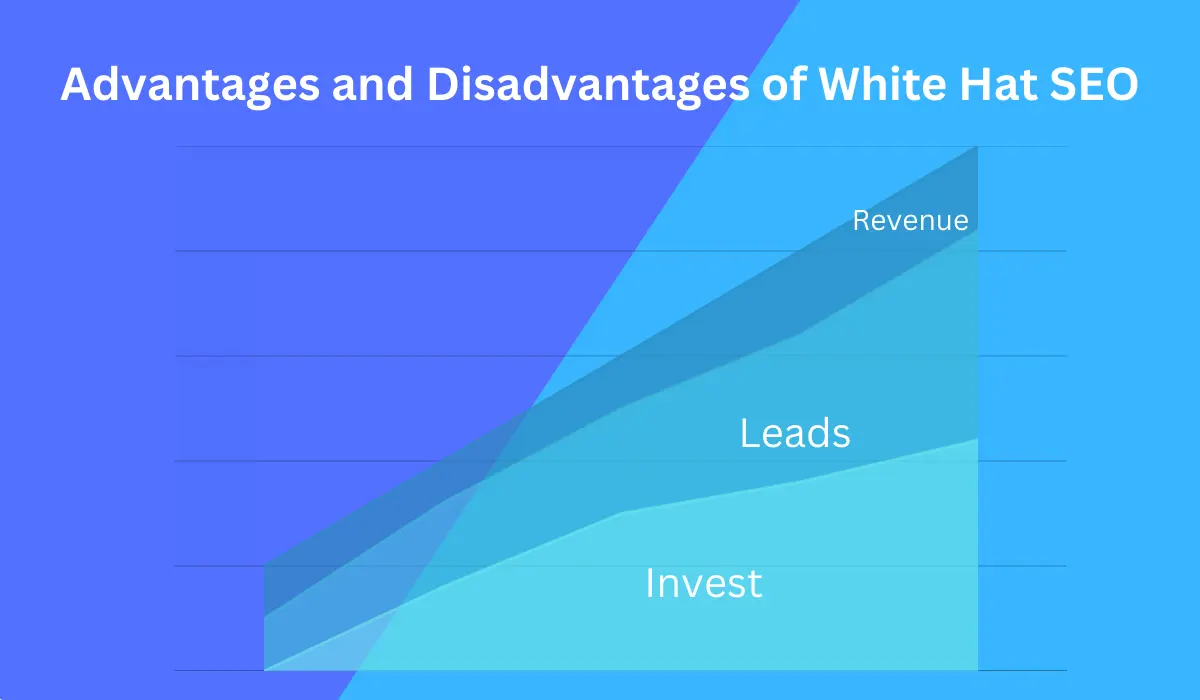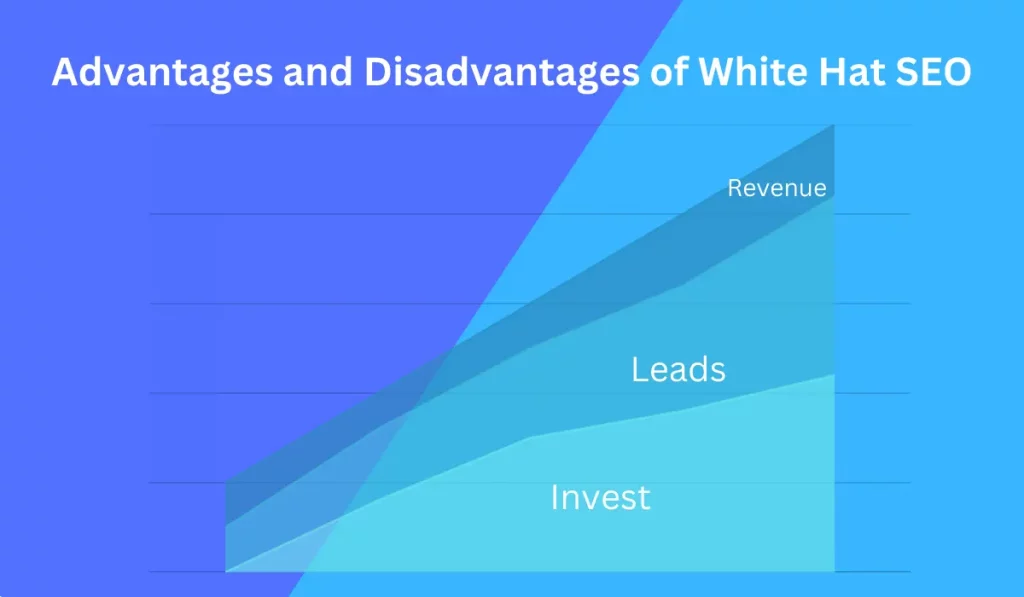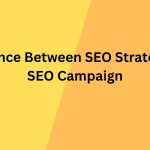In this digital era, we all heard the words “White Hat SEO”. It is a mysterious term to many entrepreneurs. Many entrepreneurs don’t want to invest in SEO. On the other hand, many entrepreneurs invest in SEO and convert their business into a successful venture. In this context, we talked about the advantages and disadvantages of white hat SEO.
Let’s jump into the deep:
What is White Hat SEO?
White Hat SEO refers to ethical and legitimate strategies and techniques used to optimize a website for search engines with the goal of improving its search engine rankings. The term “white hat” is a contrast to “black hat” SEO, which involves using deceptive or manipulative tactics to try to game the search engine algorithms. White Hat SEO focuses on providing value to users and follows the guidelines set by search engines.
Key principles and practices of White Hat SEO:
Quality Content: Creating high-quality, relevant, and valuable content for users is a fundamental aspect of White Hat SEO. Content should be well-written, informative, and address the needs of the target audience.
Keyword Research: Conducting thorough keyword research to identify relevant and appropriate keywords for the content. Integrating these keywords naturally into the content, titles, and meta tags helps search engines understand the topic of the page.
Optimizing HTML Structure: Ensuring that the HTML structure of a website is well-organized and follows best practices. This includes using proper title tags, meta descriptions, and header tags.
Quality Backlinks: Building high-quality, natural backlinks from reputable and relevant websites. White Hat SEO focuses on earning links through valuable content and outreach, rather than using manipulative link-building tactics.
Mobile Optimization: Ensuring that a website is optimized for mobile devices, as mobile-friendly websites are favored by search engines. This includes responsive design and fast loading times.
User Experience (UX): Providing a positive user experience is essential for White Hat SEO. This involves creating a website that is easy to navigate, has clear calls to action, and is designed with the user in mind.
Social Media Integration: Engaging in social media platforms to promote content and build a strong online presence. While social signals may not directly impact search rankings, social media can drive traffic and increase brand visibility.
Regular Monitoring and Adaptation: Regularly monitoring website performance, user behavior, and search engine algorithm updates. Adapting strategies based on these insights helps maintain and improve search rankings over time.
By following these ethical practices, website owners and marketers aim to build a sustainable online presence that not only performs well in search engine results but also provides a positive experience for users.
Read More Articles
Advantages and Disadvantages of White Hat SEO
Here, I’m sharing some advantages and disadvantages of white hat SEO.
Advantages of White Hat SEO
White Hat SEO offers several advantages for website owners and businesses looking to improve their online presence in a sustainable and ethical manner. Here are some of the key advantages:
Long-Term Sustainability:
White Hat SEO strategies focus on building a strong foundation for a website’s online presence. By following ethical practices, websites are less likely to face penalties from search engines, resulting in more sustainable and long-term success.
Improved Search Engine Rankings:
Search engines, such as Google, value high-quality content and user experience. White Hat SEO techniques, such as creating valuable content and earning quality backlinks, contribute to improved search engine rankings over time.
Positive User Experience:
White Hat SEO is centered around creating a positive user experience. Websites optimized for user satisfaction, with relevant content, easy navigation, and fast loading times, are likely to retain visitors and encourage repeat visits.
Enhanced Credibility and Trust:
Following ethical SEO practices helps build credibility and trust with both users and search engines. Visitors are more likely to trust a website that provides valuable and accurate information, leading to increased brand authority.
Protection Against Penalties:
Search engines regularly update their algorithms to combat spam and low-quality content. White Hat SEO techniques reduce the risk of being penalized by search engines, ensuring that the website remains in compliance with guidelines.
Quality Content Marketing:
White Hat SEO often involves content marketing strategies, such as creating informative blog posts, articles, and multimedia content. This not only attracts search engine attention but also engages and educates the target audience, fostering a stronger connection with the brand.
Adaptability to Algorithm Changes:
Search engine algorithms evolve over time. White Hat SEO focuses on understanding and adapting to these changes, ensuring that the website remains in compliance with current best practices and continues to perform well in search results.
Builds a Strong Online Reputation:
Positive online experiences lead to better reviews, social media engagement, and word-of-mouth referrals. White Hat SEO contributes to building a strong online reputation, which is crucial for attracting and retaining customers.
Increased Visibility in Local Searches:
For businesses with a local presence, White Hat SEO helps improve visibility in local search results. This is essential for attracting customers in specific geographic areas.
Measurable Results:
White Hat SEO often involves tracking and analyzing website performance using tools such as Google Analytics. This allows website owners to measure the effectiveness of their strategies, identify areas for improvement, and make data-driven decisions.
In summary, White Hat SEO provides a holistic and ethical approach to online optimization, offering not only improved search engine rankings but also long-term sustainability, positive user experiences, and a reputable online presence.
Disadvantages of White Hat SEO
While White Hat SEO is generally considered ethical and sustainable, it’s important to note that no approach is without its challenges. Here are some potential disadvantages or challenges associated with White Hat SEO:
Time-Consuming Results:
White Hat SEO strategies often take time to show significant results. Unlike some black hat techniques that may yield quick but short-lived improvements, ethical practices require patience and consistent effort.
Competitive Nature:
In competitive industries, it can be challenging to stand out and achieve top rankings solely through White Hat SEO. Building authority and earning quality backlinks may take time, especially when competing with websites that might employ more aggressive tactics.
Dependency on Algorithm Changes:
White Hat SEO is susceptible to changes in search engine algorithms. While ethical practices aim to adapt to algorithm updates, sudden and significant changes can still impact rankings and visibility.
Resource Intensive:
Implementing White Hat SEO strategies often requires significant resources, including time, manpower, and sometimes financial investment. Creating high-quality content, conducting outreach for link building, and maintaining a positive user experience can be resource-intensive.
Limited Control Over External Factors:
White Hat SEO involves earning backlinks through quality content and ethical outreach. However, website owners have limited control over external factors, such as other websites linking to them. Negative SEO (where competitors attempt to harm a site’s rankings) or unforeseen circumstances can affect results.
Results Depending on Content Quality:
The success of White Hat SEO is highly dependent on the quality of the content. If the content is not engaging, relevant, or well-optimized, it may not attract the desired audience or earn the necessary backlinks.
Continuous Effort Required:
White Hat SEO is an ongoing process that requires continuous effort. Regularly updating content, monitoring analytics, and adapting to changes in the online landscape are necessary for maintaining and improving search rankings.
Limited Control Over User Behavior:
While White Hat SEO aims to provide a positive user experience, website owners have limited control over how users interact with their site. Factors such as user preferences, device compatibility, and other external elements can influence user behavior.
Risk of Misinterpretation by Search Engines:
Search engines may misinterpret some White Hat SEO practices, leading to potential ranking fluctuations. For example, changes to a website, even for improvements, may be initially misunderstood by search algorithms.
Balancing User and Search Engine Needs:
Striking the right balance between optimizing for search engines and providing a great user experience can be challenging. Sometimes, what is best for users may not align perfectly with search engine algorithms.
Impacts
Despite these potential disadvantages, White Hat SEO remains the preferred approach for building a sustainable and reputable online presence. The challenges mentioned are often outweighed by the long-term benefits of ethical practices, including improved credibility, user trust, and resistance to search engine penalties.
Also Read
End Words
Whether or not to invest in White Hat SEO depends on your specific goals, the nature of your business, and your long-term strategy. However, in many cases, investing in White Hat SEO is a prudent and sustainable decision.
Before making a decision, it’s important to assess your specific business goals, budget, and the competitive landscape. If you’re focused on sustainable growth, building brand authority, and providing a positive user experience, investing in White Hat SEO is likely to align with your overall business strategy. However, it’s also important to be realistic about the time frame for results, as ethical SEO practices often require patience and consistent effort.
Also Read:










